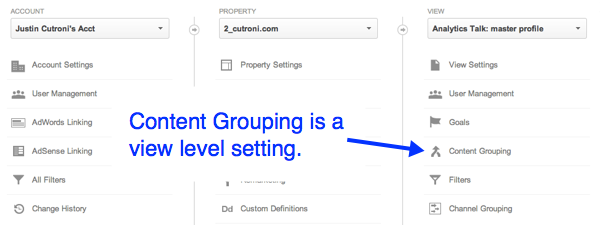Google Analytics is a great tool for online businesses. The Google Analytics Content Groupings feature is available since December 2013. This tool aims to help the companies compare the performance of different products and contents. However, many companies still are either not aware nor use this feature yet. Basically, this feature will take the Analytics as well as the content strategy a level ahead.
As per MarketingLand, the Content Grouping is an easier and helpful feature to look at the aggregated data, if you are using the Advanced Segments in order to aggregate your products or content. Once it is implemented, the Content Groupings develop as a part of your content reports letting you see the data of each group.
To get stated with Content Groupings, here is the easiest way that you can follow. You need to plan of what your content groupings have to be and what you want to add under the groups. After completing this groundwork, there are two steps to be done. They are details below.
First, start creating one of the five Content Groupings in five steps using Google Analytics. This can be done as follows:
Click Admin -> Content Grouping -> Create New Content Grouping -> Enter the name for the grouping -> Choose your method to create the groups.
The next step is to add content groups to the Content Groupings. There are three methods to do the same. If you use more than an approach, the Google Analytics tool will group your data along with the first match that it sees. The options are listed below.
Group by tracking code: In this method, Google Analytics will be told which content you like to use and the Grouping you want the context to go under.
Group by extraction: The Regular Expressions of Google Analytics is used for this option. This will name the Groupings automatically and you need to choose the page URL, page title or screen name for the extraction.
Group by rules: This will let you manually name the Group that you want to include in a specific Grouping instead of having it done by Google Analytics.

